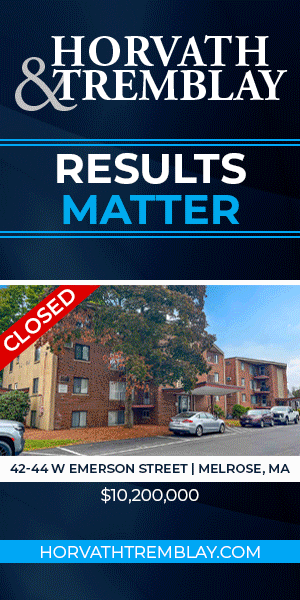Enhanced Use Leasing Seen as Effective Tool in Giving Old Military Bases New Life
April 27, 2012
Enhanced Use Leasing Seen as Effective Tool in Giving Old Military Bases New Life EDWARD S. HERSHFIELD BOSTON — Throughout Massachusetts, and virtually every other state, there are prime pieces of real estate which could be further developed. Unfortunately, there is one significant obstacle preventing the real estate community from advancing these resources . . . they are owned by the federal government. In most cases, the real estate industry has waited for the federal government to dispose of its real estate assets before becoming involved with them. For example, the private sector typically doesn’t invest in development at military bases until the land has been transferred by the Department of Defense (DOD). LNR Property LLC’s ongoing development at the former South Weymouth Naval Air Station and MassDevelopment’s project at the former Fort Devens fit this model. Both projects are noteworthy in demonstrating that former DOD sites can be successfully developed. However, the fact that there are relatively few examples of redeveloped former military bases also reminds us that the process of closing and transferring a former DOD establishment, or other federal property, is often politically charged, complex and time consuming. In addition, the fact that most federal properties are used almost exclusively by the federal government means that once it decides to shut them down, there are significant adverse economic consequences until the private sector can step in and reenergize the site. Fortunately, the federal government has another tool available—Enhanced Use Leasing— which is being used with increasing frequency and provides the private sector an efficient mechanism to enter into ground leases of federal property and capture market rate returns on its investment. Enhanced Use Leasing (EUL) can also lessen the economic consequences if the federal government later decides to shutter its operations at a facility. EULs enable designated federal agencies to enter into short or long term leases at federally owned property. The lease must be at no less than a fair market rental, but, significantly, the lease consideration can be in cash or in kind. As of the end of Fiscal Year 2008, eight federal agencies had the authority to enter into EULs, including the DOD, Veterans Affairs, Department of Energy and General Services Administration. While specific procedures vary from agency to agency, in general, the EUL process involves the following steps: • Agency prepares a notice of opportunity to lease and other solicitation materials; • Proposals are received and evaluated and a developer is selected; and • The agency and the developer negotiate and execute a lease. • It should be noted that the federal land can be leased for various purposes, as long as the use is compatible with, and forwards, the agency’s mission. In many instances, the idea for a specific EUL may have originated with a visionary developer or at an industry forum before it became embodied in a formal open competitive process. Recent examples of EULs include: • Fort Meade, Odenton, Maryland— 1.7-million-sf office park being developed by Trammel Crow • Redstone Arsenal, Huntsville, Alabama—4.4 million sf of planned office space and 124,000 sf of retail, restaurants and hotels being developed as a joint venture by Corporate Office Properties Trust and Jim Wilson & Associates, LLC • Fort Detrick, Frederick, Maryland— $130-million central utility plant designed by Chevron Energy Solutions on behalf of the project owner, Keenan Development Associates • Walter Reed Army Medical Center Building—500,000-sf medical research lab, parking garage and museum • Hill Air Force Base, Ogden Utah— lease of 550 acres for development of more than 8 million sf of office space, along with retail and hotels to support the offices. In order to successfully take advantage of the EUL program, developers need to identify available assets, work with federal agencies to develop concepts, understand federal bidding procedures and contracting regulations and finalize the leasing plan and lease. For those willing to commit the time and resources, the EUL program is an opportunity to develop long untapped prime real estate locations throughout Massachusetts and elsewhere.






